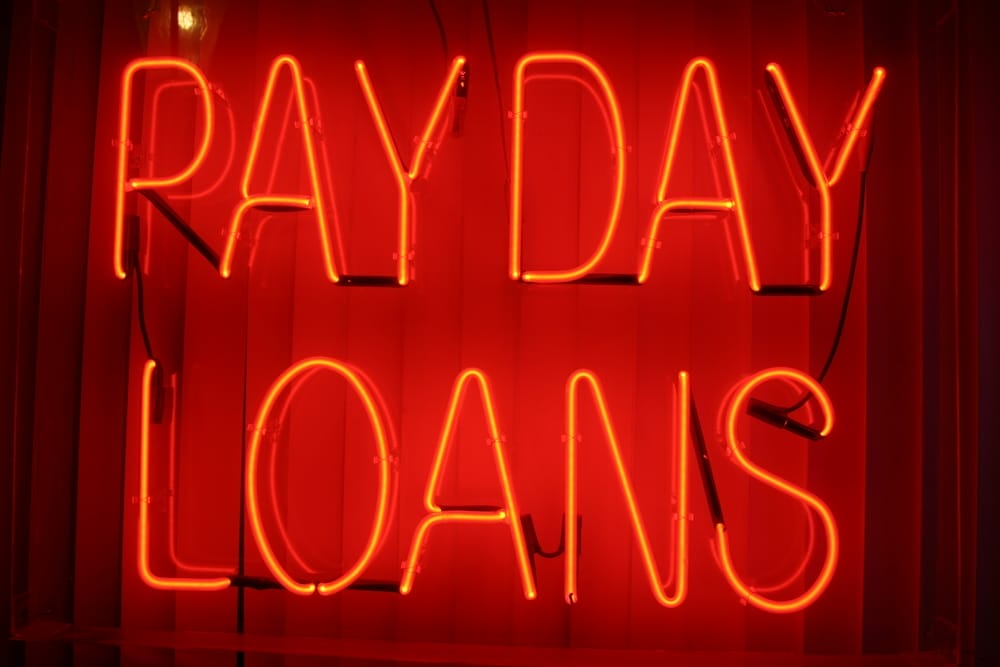Ever wonder why certain sketchy loans you heard were “banned for good” seem to keep showing up again—just with fancier names and slicker marketing? It’s not your imagination. Many forms of predatory lending that regulators cracked down on years ago have simply reemerged wearing new disguises.
They’ve traded in their old reputations for trendy buzzwords, shiny apps, and “instant approval” promises that make them sound legitimate. But make no mistake: behind the rebrand, it’s still the same trap—high fees, impossible repayment terms, and borrowers left in financial free fall. Let’s pull back the curtain on six notorious loan types that didn’t really die… they just changed outfits.
1. Payday Loans Reborn as “Cash Advance Apps”
Remember payday loans? Those short-term, high-interest nightmares that trapped people in endless debt cycles? Regulators stepped in, capping interest rates and banning exploitative terms. But the payday loan didn’t die—it got a makeover. Now it’s hiding behind your smartphone, going by the name “cash advance” or “earned wage access.”
These apps promise instant money “from your next paycheck” with no interest, but here’s the twist: instead of interest, they charge “tips” or “membership fees.” It sounds harmless until you realize those small fees can add up to the same triple-digit APRs that made payday loans infamous in the first place. They use friendly branding and pastel-colored logos, but beneath the tech gloss, it’s the same old cycle—borrow now, stress later.
2. Title Loans Turned Into “Auto Equity Loans”
Title loans were another classic debt trap: borrow a few hundred dollars, hand over your car title as collateral, and hope you can pay it back before they repossess your vehicle. Regulators tightened the screws, and many states banned them outright. But the industry didn’t retreat—it just changed its name. Enter “auto equity loans,” a slicker, less menacing term for the same risky deal.
Auto equity lenders now market themselves as “empowering” people to unlock the value of their car, but the fine print is all too familiar: sky-high interest, short repayment terms, and the very real possibility of losing your vehicle. It’s rebranded financial roulette—play long enough, and the house still wins.
3. Rent-to-Own Schemes Masquerading as “Lease-to-Buy Financing”
Rent-to-own stores used to be notorious for turning basic purchases into multi-thousand-dollar traps. Regulators forced greater transparency, but instead of fading away, these deals just rebranded into the e-commerce age. Now, “lease-to-buy” or “buy now, pay later for furniture” offers are popping up everywhere, with language that makes it sound like a modern payment plan.
The catch? You don’t actually own anything until the very last payment—and those payments are often so inflated that you’ll pay double or triple the retail cost. Companies pitch it as flexibility for people without credit, but it’s the same scheme in digital clothing. It’s the financial equivalent of renting a chair for the price of a couch.
4. Subprime Mortgages Disguised as “Non-QM Loans”
The 2008 housing crash made “subprime mortgage” a dirty phrase. Lenders promising easy approvals for people with shaky credit were exposed for fueling an entire economic meltdown. So you’d think those loans would vanish forever. Not quite. They’ve simply been reborn as “non-qualified mortgages,” or “non-QM loans.”
The new pitch is that these loans “help unconventional borrowers,” like freelancers or self-employed people. Sounds noble—until you notice the same high fees, balloon payments, and lack of income verification that brought down the housing market in the first place. Non-QM loans are a masterclass in financial rebranding: change the label, change the narrative, and hope no one remembers how bad the last batch was.
5. Payday Installments Recast as “Flex Loans”
“Flex loans” sound so modern and harmless, right? Like a gym membership or a trendy credit line. But dig deeper, and you’ll find the same DNA as payday installment loans—just stretched over longer repayment terms. Instead of two weeks, these loans might last months, making them seem more manageable. The problem is, the interest compounds, the fees pile up, and borrowers often end up paying back three to four times what they borrowed.
Flex loans thrive on illusion. They’re marketed as “customizable credit” for “financial freedom,” but they’re designed to keep you paying indefinitely. It’s like replacing a shark with a whale—different shape, same appetite. The structure is still predatory, just more patient.
6. Student Loan “Relief” That’s Really Debt Consolidation in Disguise
Student loan forgiveness scams have been around for decades, preying on desperation and confusion. But as student debt reached crisis levels, a new breed of “loan relief” programs emerged, promising to simplify or even erase debt. Many of them are just rebranded debt consolidation loans that charge steep fees for services the government already offers for free.
They use comforting names like “student debt support” or “loan assist network,” but they’re anything but helpful. Borrowers often end up owing more than before—or stuck with higher interest rates after refinancing. It’s a clever pivot on an old trick: take an illegal or exploitative model, slap on some buzzwords like “relief” or “wellness,” and watch the confusion do the rest.
Don’t Let the New Labels Fool You
Financial predators are nothing if not creative. Every time regulators close one loophole, these lenders find another way to slither back into the market with fresh branding and promises of “empowerment” or “flexibility.” The names may sound different, but the playbook hasn’t changed—it’s still about keeping borrowers trapped, confused, and dependent. The best defense isn’t fear—it’s awareness. Know the red flags, read the fine print, and if a loan sounds too easy to be true, it probably is.
Have you ever encountered one of these sneaky rebrands or been burned by a loan that turned out to be something else in disguise? Share your stories, thoughts, or warnings in the comments below. Your experience might just help someone else avoid the same trap.
You May Also Like…
Why Do People Take Out Loans for Vacations They Can’t Afford?
Could A Small Loan From a Family Member End a Relationship
Could Ignoring Your Student Loans Ruin Your Social Security?
8 Shocking Truths About Payday Loans Nobody Admits
10 Laws Passed Quietly While the Nation Was Distracted








